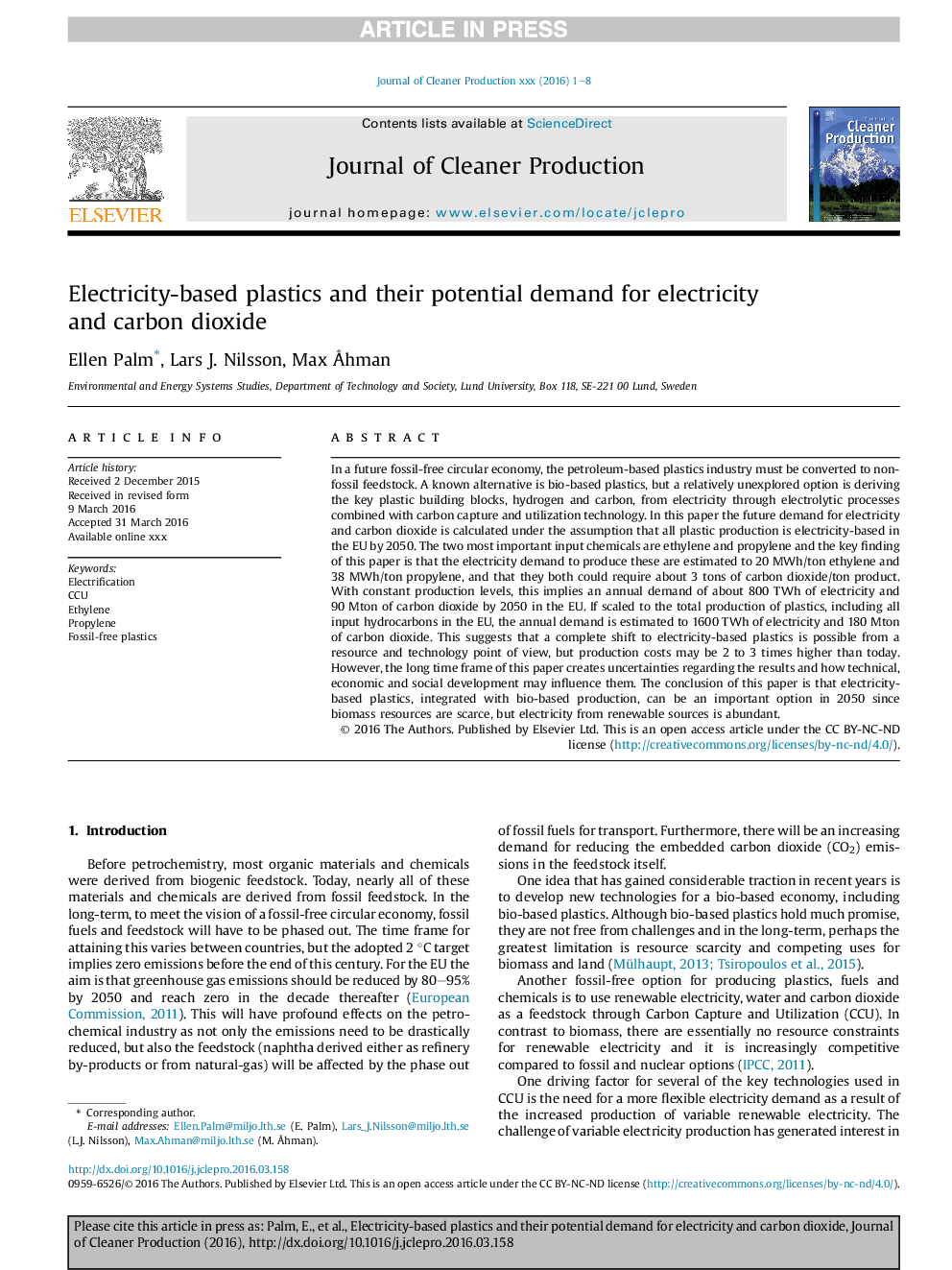| کد مقاله | کد نشریه | سال انتشار | مقاله انگلیسی | نسخه تمام متن |
|---|---|---|---|---|
| 8101979 | 1522120 | 2016 | 8 صفحه PDF | دانلود رایگان |
عنوان انگلیسی مقاله ISI
Electricity-based plastics and their potential demand for electricity and carbon dioxide
ترجمه فارسی عنوان
پلاستیک های مبتنی بر برق و تقاضای بالقوه آنها برای برق و دی اکسید کربن
دانلود مقاله + سفارش ترجمه
دانلود مقاله ISI انگلیسی
رایگان برای ایرانیان
موضوعات مرتبط
مهندسی و علوم پایه
مهندسی انرژی
انرژی های تجدید پذیر، توسعه پایدار و محیط زیست
چکیده انگلیسی
In a future fossil-free circular economy, the petroleum-based plastics industry must be converted to non-fossil feedstock. A known alternative is bio-based plastics, but a relatively unexplored option is deriving the key plastic building blocks, hydrogen and carbon, from electricity through electrolytic processes combined with carbon capture and utilization technology. In this paper the future demand for electricity and carbon dioxide is calculated under the assumption that all plastic production is electricity-based in the EU by 2050. The two most important input chemicals are ethylene and propylene and the key finding of this paper is that the electricity demand to produce these are estimated to 20Â MWh/ton ethylene and 38Â MWh/ton propylene, and that they both could require about 3Â tons of carbon dioxide/ton product. With constant production levels, this implies an annual demand of about 800Â TWh of electricity and 90Â Mton of carbon dioxide by 2050 in the EU. If scaled to the total production of plastics, including all input hydrocarbons in the EU, the annual demand is estimated to 1600Â TWh of electricity and 180Â Mton of carbon dioxide. This suggests that a complete shift to electricity-based plastics is possible from a resource and technology point of view, but production costs may be 2 to 3 times higher than today. However, the long time frame of this paper creates uncertainties regarding the results and how technical, economic and social development may influence them. The conclusion of this paper is that electricity-based plastics, integrated with bio-based production, can be an important option in 2050 since biomass resources are scarce, but electricity from renewable sources is abundant.
ناشر
Database: Elsevier - ScienceDirect (ساینس دایرکت)
Journal: Journal of Cleaner Production - Volume 129, 15 August 2016, Pages 548-555
Journal: Journal of Cleaner Production - Volume 129, 15 August 2016, Pages 548-555
نویسندگان
Ellen Palm, Lars J. Nilsson, Max Ã
hman,
